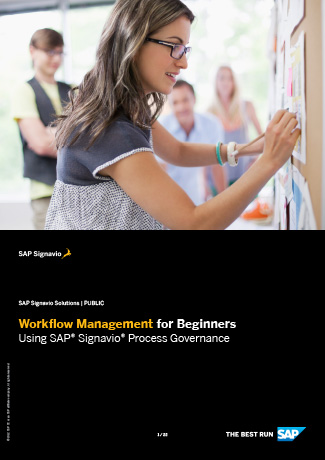Automation Developer
Automation developers build, scale, and maintain business process automations. Learn what they do, how they work, and what it takes to succeed in this role.

Automation developers build, scale, and maintain business process automations. Learn what they do, how they work, and what it takes to succeed in this role.
An automation developer designs, builds, and maintains software automations that improve how business processes run. Within business process management, they translate opportunities identified by analysts and managers into functioning technical solutions, such as robotic process automation (RPA), workflows, or integrations.
As one of the specialized business process roles, automation developers play a hands-on part in reducing manual effort, improving accuracy, and enabling scale by embedding automation into day-to-day operations.
An automation developer is a technical role focused on turning business requirements into automated workflows, scripts, or bots.
They work closely with process analysts, managers, and owners to understand pain points and design solutions using workflow automation tools, RPA platforms, and low-code development environments.
Unlike analysts or managers, who focus on analysis and governance, automation developers specialize in the technical implementation of process change. Their work ensures that improvements move from design into executable, sustainable solutions.
Automation developers focus on the technical implementation of business process improvements.
They translate requirements gathered by analysts and approved by managers or owners into automated workflows, integrations, and bots that make processes faster, more accurate, and more scalable.
Automation developers are accountable for designing and delivering reliable automations. Their responsibilities often include:
On a daily basis, automation developers engage in both design and support activities. This includes:
Automation developers produce tangible outputs that bring process improvements to life, such as:
Automation developers need a blend of technical expertise, problem-solving ability, and business awareness. While specific requirements vary by organization, most automation developer roles expect the following:
Most automation developers hold degrees in Computer Science, Information Systems, or Engineering, though some enter the field through business or operations backgrounds with technical upskilling.
Common credentials include:
Requirements differ across industries: in regulated environments (finance, healthcare), compliance knowledge is critical, while in fast-growing firms, low-code development speed is often prioritized.
While automation developers rely heavily on technical skills, success in the role also depends on personal traits that help them design sustainable, business-ready solutions.
Together, these traits enable automation developers to act as both problem-solvers and innovators, embedding efficiency into everyday operations.
→ Related: The Value of Business Process Management
Automation developers rely on platforms and frameworks that allow them to design, build, and maintain automations at scale. Their toolset is more technical than that of analysts, managers, or owners, focusing on development, testing, and integration.
By combining these tools and frameworks, automation developers create reliable solutions that reduce manual work and embed efficiency directly into enterprise processes.
The automation developer role is typically a specialized technical path within process management. It appeals to professionals who enjoy hands-on development and problem-solving but also want to see direct impact on business processes.
Future automation developers often begin in IT, operations, or business analysis roles where they gain exposure to systems and workflows. At this stage, they develop technical skills in scripting, integration, or low-code platforms.
Developers gain responsibility for designing and deploying production-ready automations across business units. They often act as the bridge between business process teams and IT.
At this level, developers take ownership of automation portfolios, lead teams, and enforce governance standards. They also work with process managers and owners to scale automation across the enterprise.
With proven expertise, automation professionals can move into leadership roles focused on enterprise transformation or technology strategy. These positions expand their scope from individual automations to enterprise-wide programs.
Automation developers may also branch into related domains where technical and process knowledge overlap:
Automation development can be both a deep technical career path and a gateway to leadership roles in transformation and IT. Professionals advance by scaling from building individual bots to overseeing automation strategies at the enterprise level.
Automation developer salaries vary depending on region, industry, and the complexity of automation platforms used. Compensation reflects the growing demand for professionals who can translate business needs into technical automations that scale.
| Region | Entry-Level Automation Developer | Mid-Level Automation Developer | Senior/Lead Automation Developer |
|---|---|---|---|
| United States | $70,000 – $85,000 | $85,000 – $110,000 | $115,000 – $140,000+ |
| United Kingdom | £35,000 – £45,000 | £45,000 – £65,000 | £70,000 – £90,000+ |
| Germany (DACH) | €50,000 – €65,000 | €65,000 – €85,000 | €90,000 – €110,000+ |
| India | ₹5L – ₹8L | ₹9L – ₹15L | ₹16L – ₹25L+ |
Sources: Glassdoor, Payscale, Indeed (2024–2025 averages). Salaries reflect typical ranges but vary by industry, company size, and maturity of automation programs.
Automation developers are among the fastest-growing roles in BPM, with strong demand expected to continue as enterprises push for efficiency, resilience, and digital transformation.
→ Related: BPM vs. Analysis vs. Automation

Because automation sits at the crossroads of business and IT, the automation developer role is often confused with other technical and process positions. Each has a different focus and scope.
Automation developers are the builders of business process automation. While analysts, managers, and owners identify needs and set priorities, developers ensure those improvements are translated into functioning, reliable solutions.
Despite being a fast-growing role, automation developers are often misunderstood. Here are some of the most common misconceptions:
The demand for automation developers is expected to grow as organizations scale their use of workflow automation, AI, and low-code platforms. As routine RPA matures, the role will evolve toward building intelligent automations that combine process orchestration, analytics, and machine learning.
Rather than being replaced by tools, automation developers will become more strategic — designing resilient automations, embedding compliance, and enabling business agility. Their future lies in bridging business and IT, making them key contributors to enterprise transformation.
Unleash the power of process and learn workflow management in simple terms.

